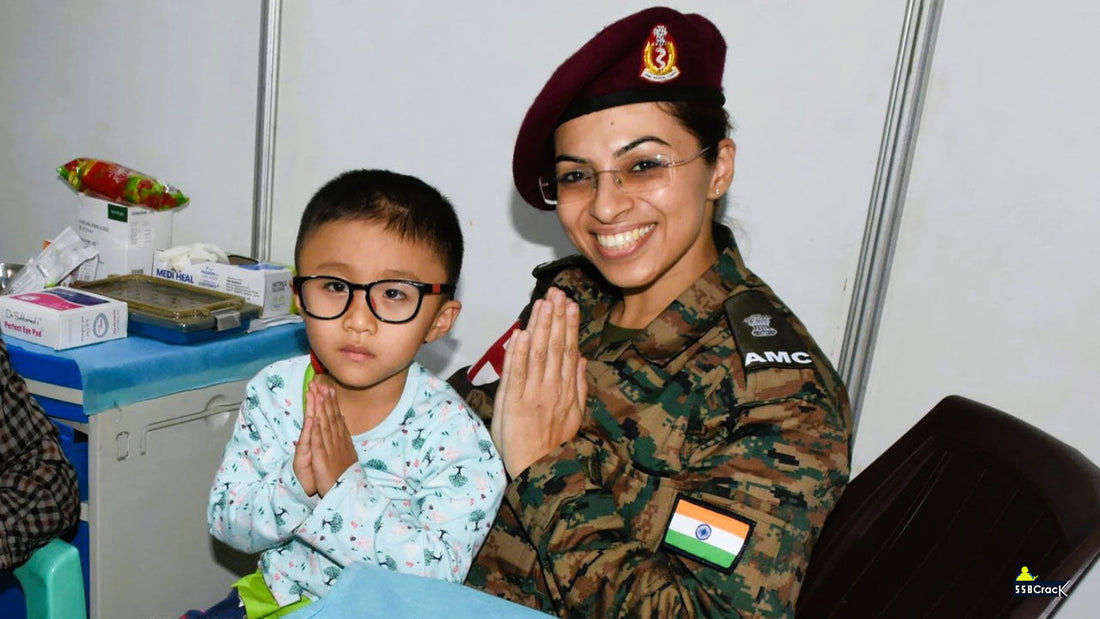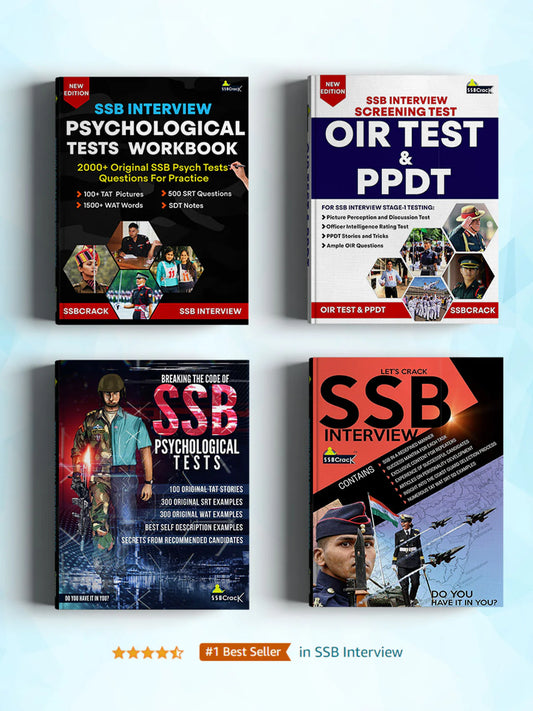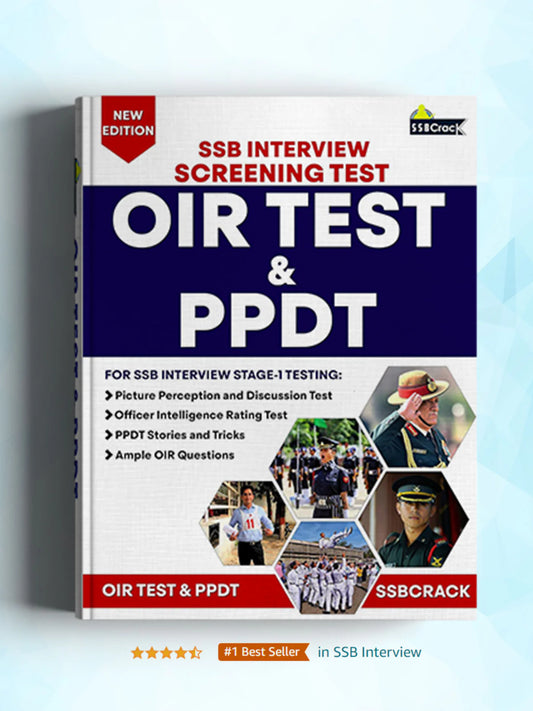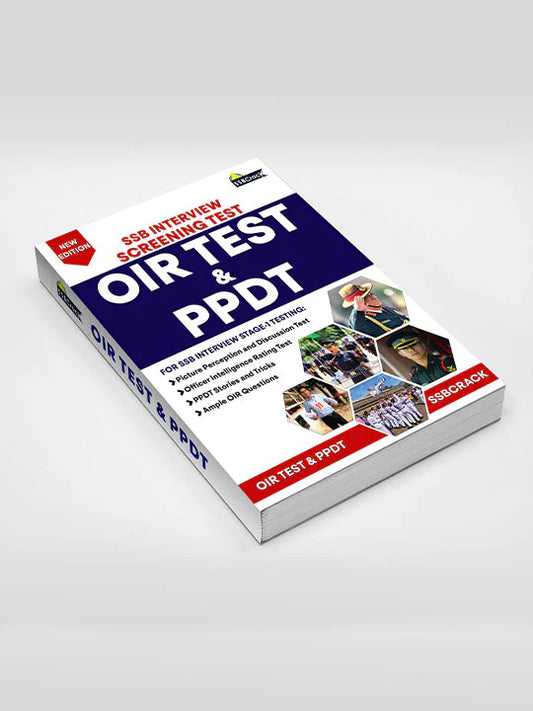How to Become a Military Doctor in India?

Embarking on a journey to become a military doctor in India is a noble pursuit that intertwines medical expertise with a commitment to serving the nation. This career path not only offers the opportunity to provide essential healthcare to armed forces personnel and their families but also allows individuals to partake in a profession that is both rewarding and respected. This comprehensive guide will walk you through the steps, requirements, and benefits of becoming a military doctor in India.
Understanding the Role of a Military Doctor
Military doctors play a crucial role in ensuring the health and well-being of soldiers, often working in challenging environments. They provide medical care in military hospitals, offer combat medicine in the field, and participate in humanitarian missions. The responsibilities of military doctors extend beyond typical medical practice, encompassing a wide range of duties that can include:
- Emergency Care: Providing immediate medical assistance in combat zones or during disasters.
- Routine Healthcare: Managing the health of military personnel and their families in various settings.
- Specialized Medical Services: Engaging in surgical procedures, trauma care, and mental health support.
The Pathway to Becoming a Military Doctor
Step 1: Educational Requirements
To become a military doctor, the first step is obtaining a medical degree. Here’s what you need to do:
- Complete Your 10+2 Education: Focus on subjects like Biology, Chemistry, and Physics to build a strong foundation.
- Pursue an MBBS Degree: Enroll in a recognized medical college and complete the Bachelor of Medicine, Bachelor of Surgery (MBBS) program. Aspirants often aim for the Armed Forces Medical College (AFMC) in Pune, which offers a pathway into military service.
Step 2: Entrance Examinations
After completing your schooling, you must clear the National Eligibility cum Entrance Test (NEET) to gain admission to medical colleges. This competitive examination assesses your knowledge in the sciences and is a crucial step for aspiring military doctors.
- Preparation for NEET: Utilize resources such as coaching classes, study materials, and online platforms to enhance your preparation.
Step 3: Admission to AFMC
If your goal is to join the Indian Army as a military doctor, applying to AFMC is highly recommended. The admission process involves:
- Written Examination: AFMC conducts its own entrance test.
- Interviews and Medical Examination: Shortlisted candidates will undergo interviews and a thorough medical examination to ensure they meet the physical and mental standards required for military service.
Step 4: Complete Your Medical Training
Once admitted to AFMC, you will undergo a comprehensive training program that includes:
- Academic Curriculum: The MBBS program typically lasts for 4.5 years, followed by a year of internship.
- Military Training: Alongside medical education, you will receive military training to prepare you for your role as a commissioned officer.
Step 5: Commissioning as a Military Doctor
Upon successful completion of your MBBS and military training, you will be commissioned as a military doctor. This involves:
- Rank Assignment: Fresh graduates usually start as Captains or equivalent ranks in the Navy and Air Force.
- Service Commitment: Graduates are required to serve a specified number of years in the armed forces, typically a minimum of 5 years.
SSB Interview Books Power Pack: 4 Must Read Books for Defence Aspirants
Rs. 1,760.00
Sale price
Rs. 1,399.00
Let's Crack SSB Interview Book [Paperback]
Rs. 390.00
Sale price
Rs. 360.00
Breaking The Code of SSB Psychological Tests Book - SSB Interview (TAT/WAT/SRT/SD)
Rs. 390.00
Sale price
Rs. 360.00
OIR Test & PPDT Book - SSB Interview Screening Test - Stage 1 Testing
Rs. 490.00
Sale price
Rs. 375.00
Alternative Pathways for Civilian Graduates
For those who have completed their medical education from civilian institutions, there are alternative pathways to join the military as a doctor:
Short Service Commission (SSC)
- Eligibility: Graduates with an MBBS or equivalent degree can apply for a Short Service Commission.
- Duration: The initial service period is typically 5 years, which can be extended based on performance.
Permanent Commission (PC)
- Eligibility: Graduates from AFMC are eligible for a Permanent Commission, allowing them to serve until retirement.
- Long-term Commitment: This route offers better job security and opportunities for advancement.
Salary Structure and Benefits
One of the appealing aspects of becoming a military doctor is the competitive salary and extensive benefits package:
Salary Overview
- Starting Salary: A newly commissioned military doctor can expect a monthly salary ranging from INR 60,000 to 80,000, depending on rank and experience.
- Promotions: As doctors advance in their careers, salaries can increase significantly, with higher ranks earning more.
Additional Benefits
Military doctors enjoy a range of benefits, including:
- Housing Allowance: Subsidized or free accommodation in military quarters.
- Free Medical Care: Comprehensive healthcare for themselves and their families.
- Pension: A secure pension plan after retirement.
- Travel Allowance: Subsidized travel for duty-related movements.

Training and Development Opportunities
Military doctors have access to various training and development opportunities throughout their careers:
Specialized Training
- Postgraduate Education: Opportunities exist for further specialization in fields such as surgery, cardiology, and psychiatry.
- Advanced Courses: The armed forces often sponsor doctors for advanced training programs, both domestically and internationally.
Leadership Development
- Mentorship Programs: Senior doctors play a crucial role in training and mentoring junior officers, fostering a culture of continuous learning.
- Leadership Roles: As they gain experience, military doctors can take on leadership positions, influencing healthcare policies within the armed forces.
Challenges Faced by Military Doctors
While the role of a military doctor is rewarding, it does come with its challenges:
High-Pressure Environment
- Combat Situations: Military doctors often work in high-stress environments, requiring quick decision-making and adaptability.
- Resource Limitations: Field hospitals may have limited resources, making it essential for doctors to be resourceful and innovative.
Work-Life Balance
- Long Hours: The demands of military service can lead to long working hours and time away from family.
- Frequent Relocations: Doctors may be posted in various locations, sometimes in remote or conflict-prone areas.
Preparing for a Career as a Military Doctor
Aspiring military doctors should take proactive steps to enhance their chances of success:
Academic Excellence
- Focus on Studies: Maintain strong academic performance throughout your education to increase your competitiveness for admission to AFMC and other military programs.
- NEET Preparation: Invest time and effort in preparing for the NEET exam, utilizing various study resources.
Physical Fitness
- Stay Fit: Engage in regular physical training to meet the physical fitness standards required for military service.
- Participate in Sports: Involvement in sports can enhance physical fitness and teamwork skills, both valuable in military settings.
Develop Soft Skills
- Communication Skills: Effective communication is crucial in military medicine, as doctors often work in teams and must convey information clearly.
- Leadership Qualities: Developing leadership skills can help in advancing your career within the military.
Conclusion
Becoming a military doctor in India is a fulfilling career that combines medical expertise with a commitment to serving the nation. The journey requires dedication, hard work, and a willingness to face challenges head-on. With competitive salaries, extensive benefits, and opportunities for professional growth, this path is not only a career choice but a noble calling. Aspiring military doctors must focus on their education, physical fitness, and personal development to succeed in this esteemed profession.
FAQs
1. What qualifications are needed to become a military doctor in India?
To become a military doctor, you need to complete an MBBS degree from a recognized institution and pass the NEET exam for admission to medical colleges.
2. How can I join the Indian Armed Forces as a civilian medical graduate?
Civilian medical graduates can join through the Short Service Commission (SSC) or apply for a Permanent Commission (PC) if they are graduates from AFMC.
3. What is the salary range for military doctors?
The starting salary for military doctors ranges from INR 60,000 to 80,000 per month, with opportunities for salary increases as they advance in rank.
4. Are there opportunities for specialization after becoming a military doctor?
Yes, military doctors have access to postgraduate training and specialization programs, often sponsored by the armed forces.
5. What challenges do military doctors face?
Military doctors may face high-pressure situations, resource limitations, and challenges related to work-life balance due to the demands of military service.


![Let's Crack SSB Interview Book [Paperback]](http://shop.ssbcrack.com/cdn/shop/files/ssb-books.webp?v=1736351621&width=533)
























